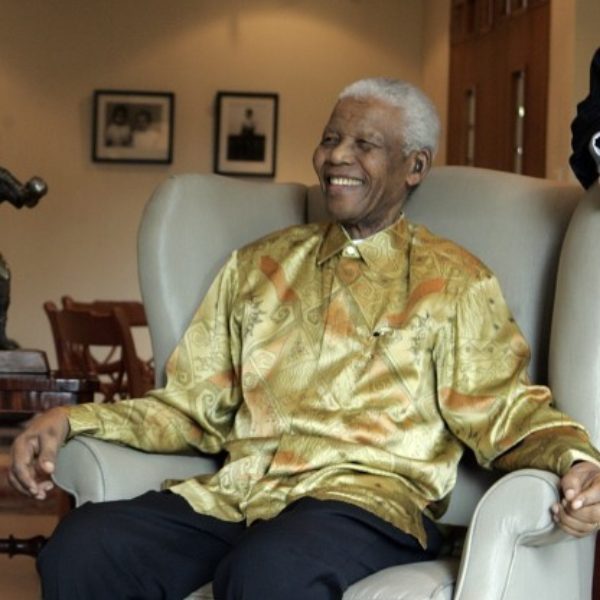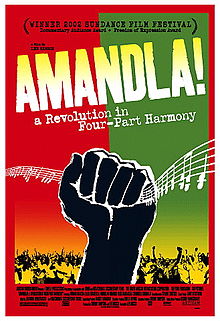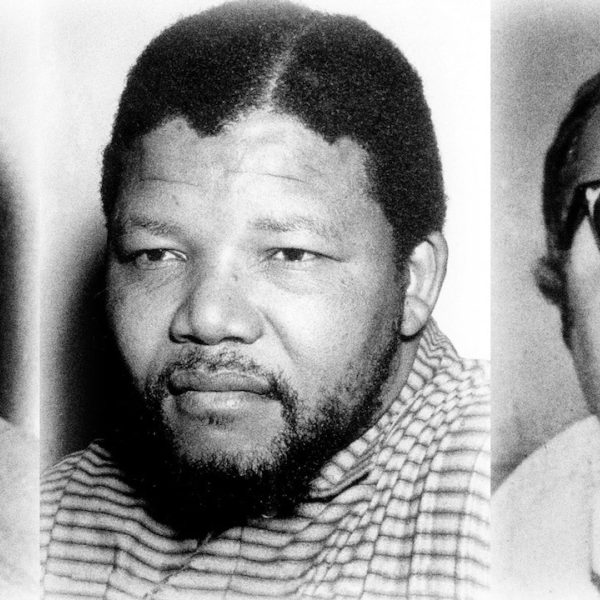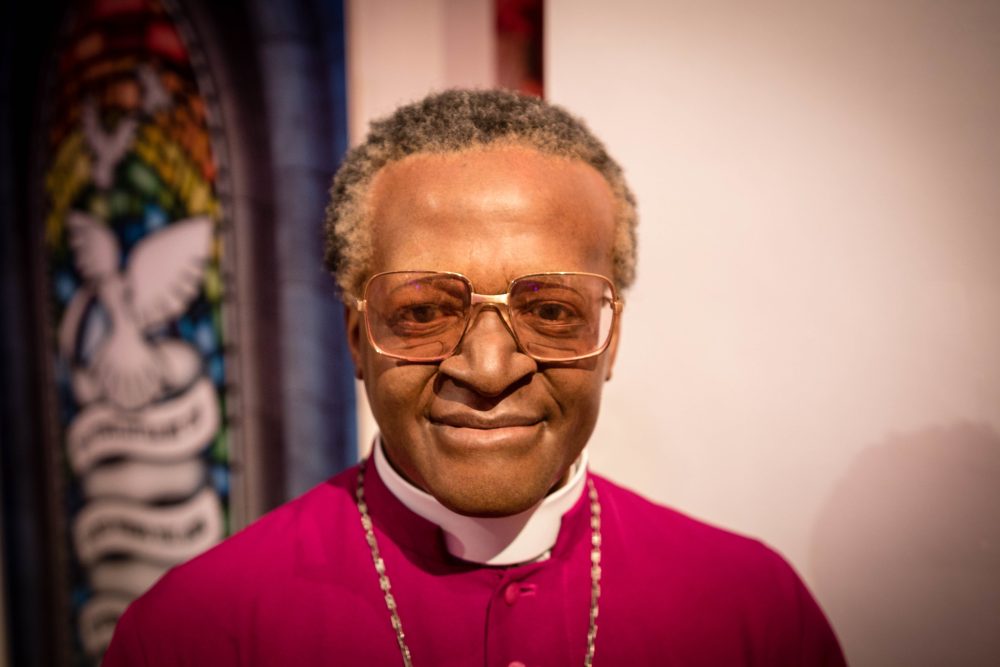
South African Archbishop Desmond Tutu has died at 90 years old: He had been diagnosed with prostate cancer in 1997.
It’s difficult to know where to begin to sum up the legacy of the man: A tireless humanitarian who fought apartheid and racism in his home of South Africa for decades; an advocate for nonviolence in the struggle and winner of the 1984 Nobel Peace Prize; the chairman of the Truth and Reconciliation Commission as South Africa tried to move forward after apartheid; a leading advocate for LGBTQ rights and same sex marriage. Even into his later years he spoke against the oppressive Israeli occupation of Palestine and against a South African government that he felt was enriching a small elite at the expense of the country.
Tutu's obituary in the New York Times is worth looking at, as is an article in the Associated Press by the U.S. Episcopal Church’s first openly gay bishop. Leaders from around the world are paying homage on Twitter [Forgive the America-centric nature of this small selection].

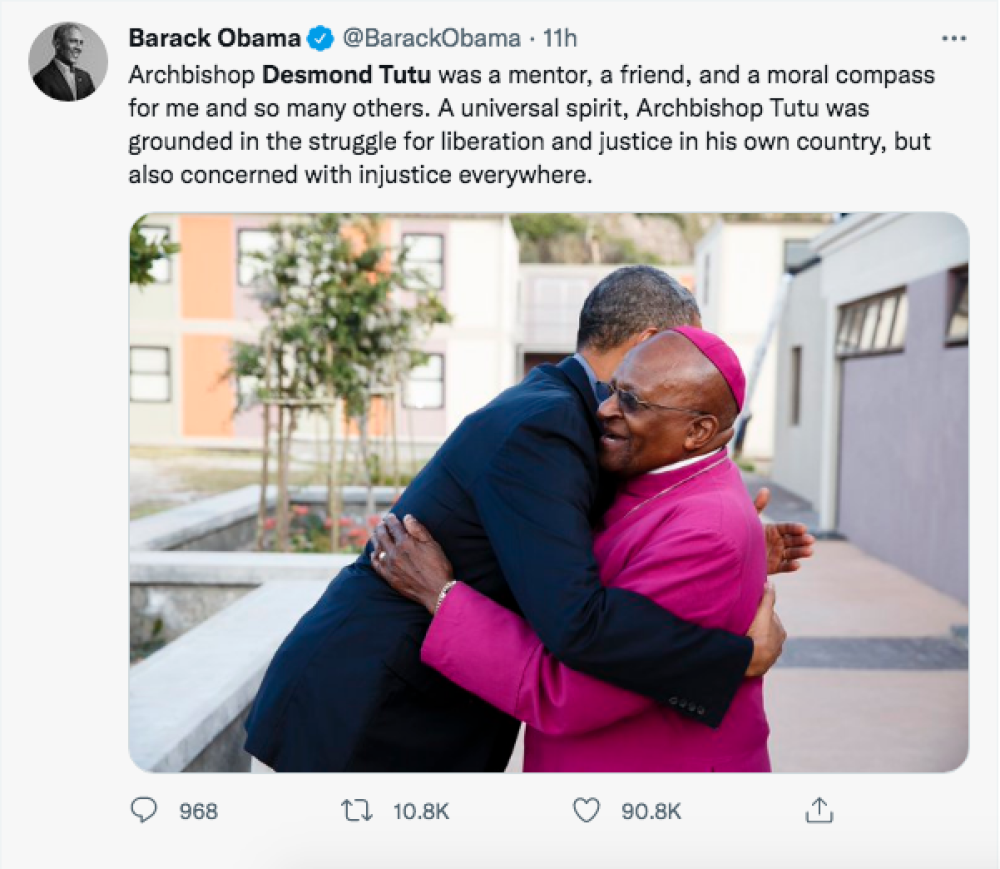

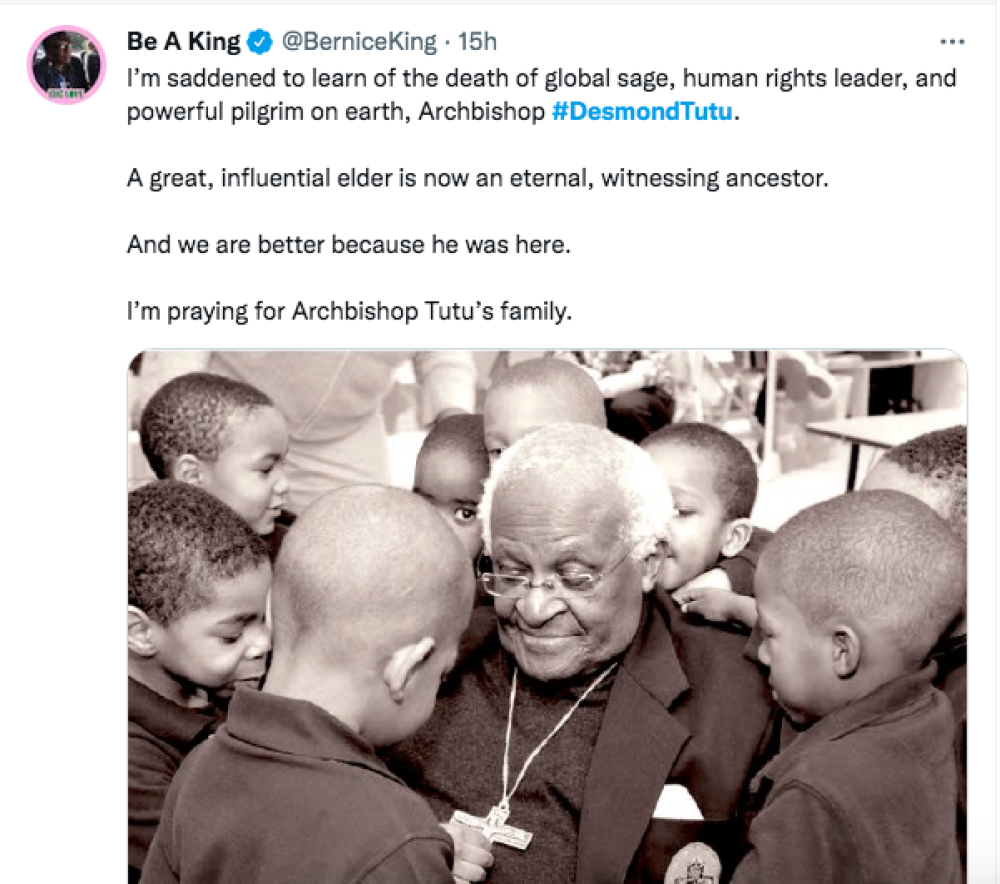
Tutu's life and commitment to the service of the oppressed and opposition to tyranny continue to amaze. His compassion extended even to the oppressors and what their actions were doing to themselves. Known for his laughter and joyful dancing, he embodied his Christian faith in a way that truly seemed otherworldly, truly inspired by the divine, truly working for the "least of these."
Related Audio Programs









